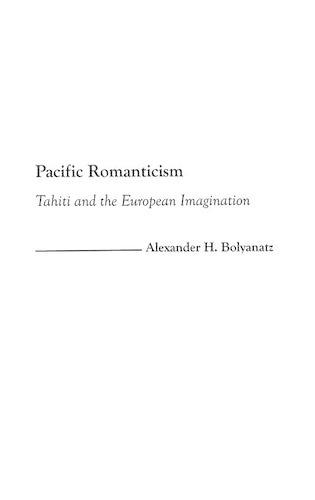
Pacific Romanticism: Tahiti and the European Imagination
(Hardback)
Publishing Details
Pacific Romanticism: Tahiti and the European Imagination
By (Author) Alexander H. Bolyanatz
Bloomsbury Publishing PLC
Praeger Publishers Inc
30th October 2004
United States
Classifications
General
Non Fiction
General and world history
919.621104
Physical Properties
Hardback
148
Description
Provides a detailed description of European explorers' accounts of Tahiti in 1768 Europeans' romanticist imaginings of people from the South Pacific date back to the Enlightenment and have been significantly informed by the accounts of voyages to Tahiti by people such as French explorer Louis Bougainville. This book shows that the overtly promiscuous behaviour that the French perceived as hospitality on the part of the Tahitians in 1768 was actually a defensive ploy, and that our contemporary image of sex and sexuality in Pacific Island societies is influenced by a fantasy based on this French misperception. This volume takes a very detailed look at traditional Tahitian culture and society and provides a realistic description of what happened on Tahiti when Europeans encountered the people who lived there. Bolyanatz provides a very readable history of South Pacific exploration and Enlightenment thinking. Demonstrates how the romantic European image of the Pacific is a myth based on Enlightenment misconceptions of the Tahitians Based on a detailed analysis of Tahitian society Gives fascinating insights into Enlightenment thought and its development
Reviews
Bolyanatz analyzes what is perhaps the single most influential set of reports on Polynesia--those of the French discovery of Tahiti in 1768. He then goes on to describe how anthropologists romanticized the apparent freindliness of the natives, erroneously attributing the sexual availability of Tahitian women to their hospitable nature rather than their fear of European guns. Finally, he traces the impact of these events on European intellectual history from the time of the discovery to the present day.-Reference & Research Book News
"Bolyanatz analyzes what is perhaps the single most influential set of reports on Polynesia--those of the French discovery of Tahiti in 1768. He then goes on to describe how anthropologists romanticized the apparent freindliness of the natives, erroneously attributing the sexual availability of Tahitian women to their hospitable nature rather than their fear of European guns. Finally, he traces the impact of these events on European intellectual history from the time of the discovery to the present day."-Reference & Research Book News
Author Bio
ALEXANDER H. BOLYANATZ is Assistant Professor of Anthropology at Benedictine University.
